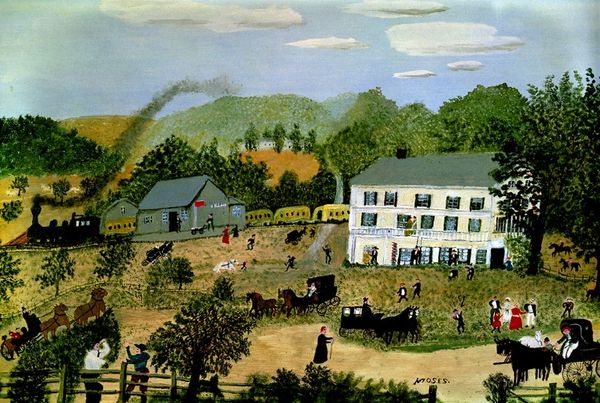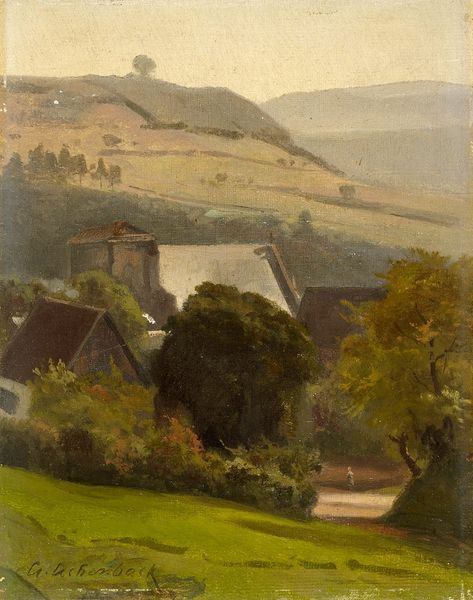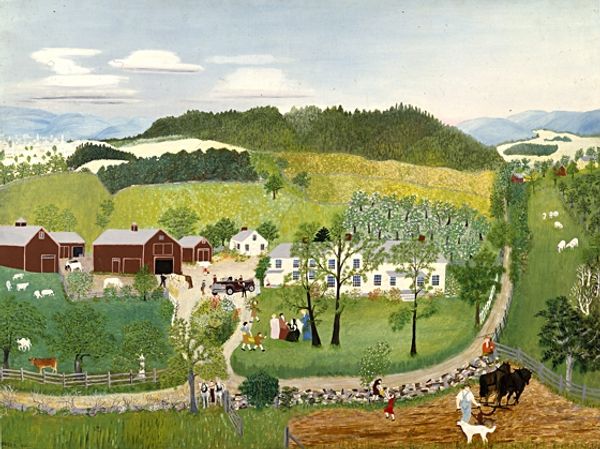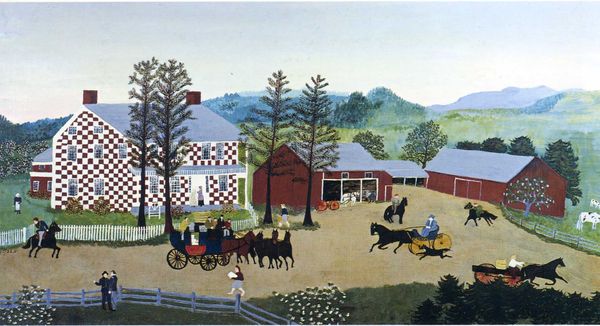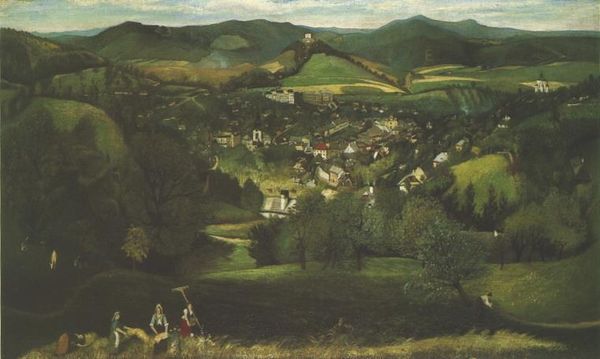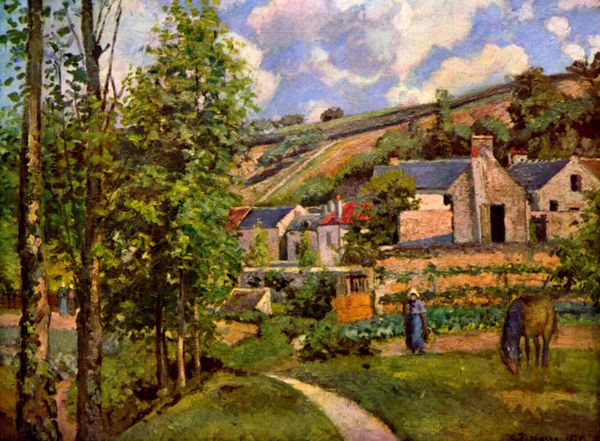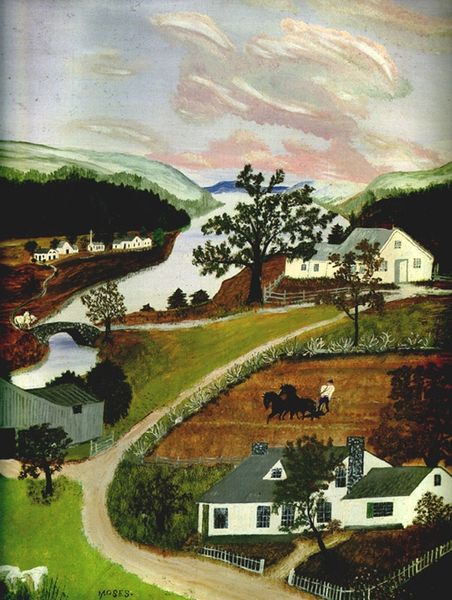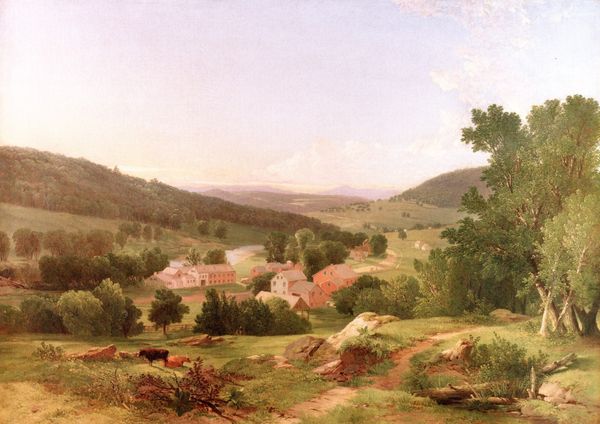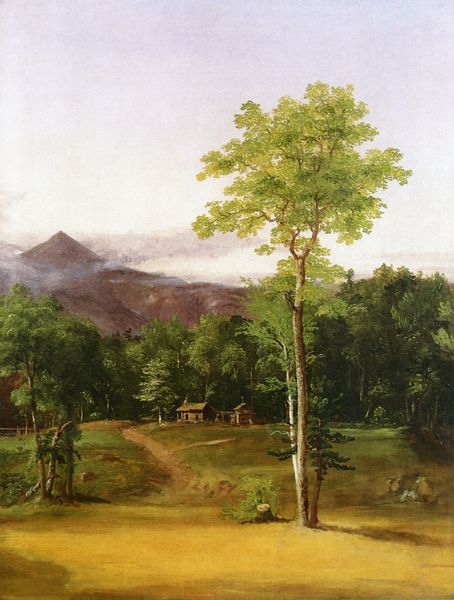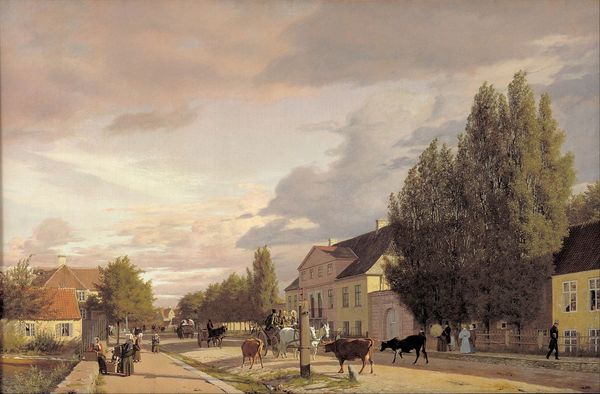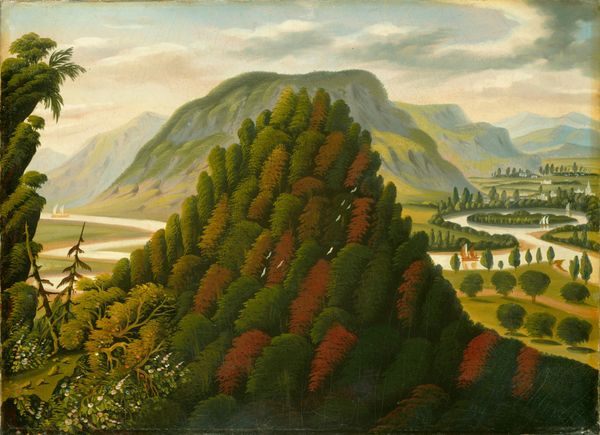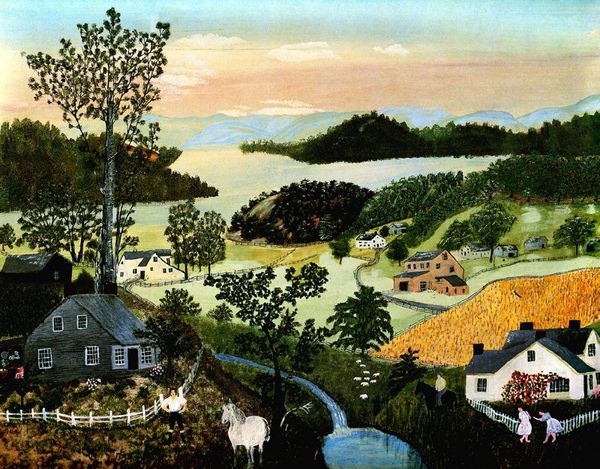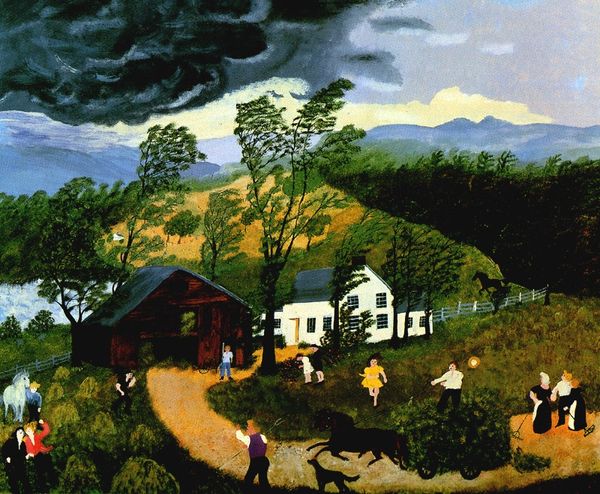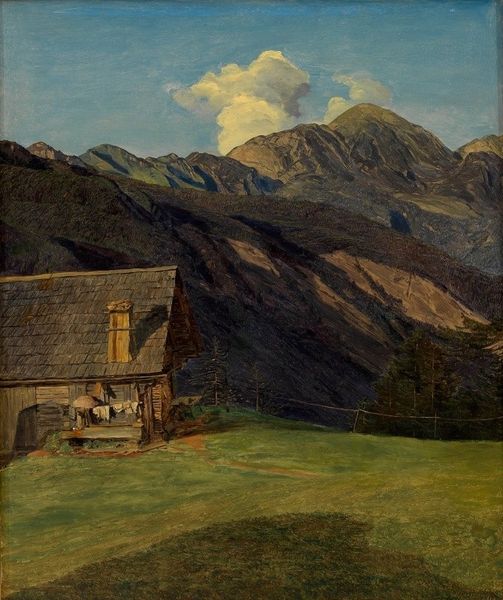
painting, plein-air
#
painting
#
plein-air
#
landscape
#
vehicle
#
landscape
#
house
#
impressionist landscape
#
road
#
folk-art
#
landscape photography
#
mountain
#
greenery
#
natural environment
#
building
Copyright: Grandma Moses,Fair Use
Editor: Here we have "Shenandoah Valley (1861 News of the Battle)", a landscape painting from 1938 by Grandma Moses. There’s a quaint, almost dreamlike quality to the whole composition, the arrangement of houses, figures, and nature almost looks deliberately flat and layered. What do you make of this particular piece? Curator: It presents a fascinating interplay of naive style and calculated structure. Observe how the artist divides the canvas into distinct horizontal zones: the foreground with the path and figures, the midground featuring the architecture, and the background that recedes to mountains with atmospheric scattering of color, creating spatial depth, despite the so-called flatness. The houses in particular, with their simplistic rendering, become formal elements contributing to a grid-like pattern across the canvas. What is your assessment of the color palette? Editor: The earthy tones give a sense of groundedness, while the touches of bright color in the figures' clothing and the blossoming plants inject some liveliness. It is a kind of stylized realism with clear structural consideration. Are the figures as prominent to the structural design as the built environment? Curator: Precisely. The artist cleverly repeats vertical shapes through the trees, figures, and even architectural features, and uses the repetition to guide the eye across the tableau. Do you feel it works to connect all of the distinct elements? Editor: I do think it works! The structure adds another layer of visual depth and the painting presents a playful approach to composition that's both sophisticated and endearingly simple. It really highlights the artist's eye for visual balance. Curator: Indeed, it underscores the potential for even seemingly 'naive' art to reveal carefully orchestrated visual structures, and invites further exploration into what we define as primitive or folk style and the complex structural choices the artist must consider to realize their design.
Comments
No comments
Be the first to comment and join the conversation on the ultimate creative platform.
